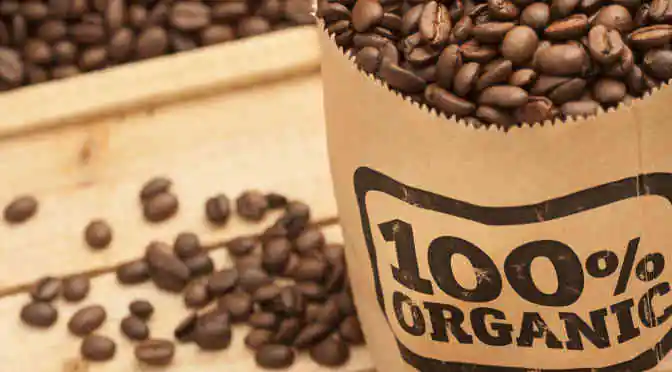‘Organic,’ the word in itself make us feel safe, right? Yes, it indeed does and the growing awareness about the benefits of organic food is driving a multimillion dollar industry. Unsurprisingly, like many organic foods and beverages, organic coffee is denoted as being ‘safer’ than its non-organic variant and is already a favorite amongst its niche audience. Millennials, mostly!
Traditional Coffee is Passé- It is true that conventional coffee is one of the most chemically treated beverages that’s available for popular consumption. It carries residual chemical matter from the cultivation and processing stages that can be considered quite toxic and harmful to human health. Conversely, organic coffee is safe, free of harmful chemicals and is quite wholesome. The bane of chemical treatment has finally been thumped by the zero chemicals format of agriculture and coffee enthusiasts are finally enjoying the best of both worlds- the aroma and flavor of traditional coffee, minus the harsh chemical treatments as demanded by modern day agricultural practices.
The cultivation of organic coffee excludes the usage of chemical fertilizers, pesticides, hormones, herbicides, fungicides, and growth regulators or antibiotics. Instead, organic coffee is cultivated with the use of compost, farm manure, and green manure. In simple terms, cultivation done right.
Additionally, the farming of healthy coffee beans includes crop rotation to improve soil fertility, a balanced pest controlled farm eco-system, and the use of good quality, clean and uncontaminated chemical-free compost materials and nursery seedlings. These benefits will undoubtedly contribute to a healthier individual and consequently, a healthier world to live in. Thankfully, coffee enthusiasts are taking note of this.
The Roadblocks- Despite the undisputed health benefits that organic coffee has to offer, the primary reason that people are hesitant to purchase these products is due to its steep cost. Another factor being the high cost of cultivation and low yield capacity. The high costs comprise of the expense of composts, organic certifications, and other facets. Organic fields yield around 12-15 bags of organic coffee per hectare compared to 45-50 bags of regular coffee per hectare of conventional fields.
Importantly, organic coffee must contain certified organic ingredients to be called as ‘organic’, which equates to no pesticides and genetically modified ingredients being used during cultivation. These strict regulations and lengthy certification procedures can hinder the entry of new players and create roadblocks for new product innovations in the market. New vendors must indulge in a lot of research and scouting before setting shop and trying to disrupt a market that in itself is trying to disrupt the conventional coffee industry.
Swig Away to Success with Technavio’s Market Research
By knowing the evolving tastes of consumers, and analyzing the competition’s reactions, a vendor can secure longevity and relevancy in the ever-evolving global organic coffee market. Technavio’s market research allows business owners to stay innovative and successful as well as change business strategies on a dime. These insights aid companies to keep track of trends and future market prospects which enable vendors to set realistic targets and achieve big results.



